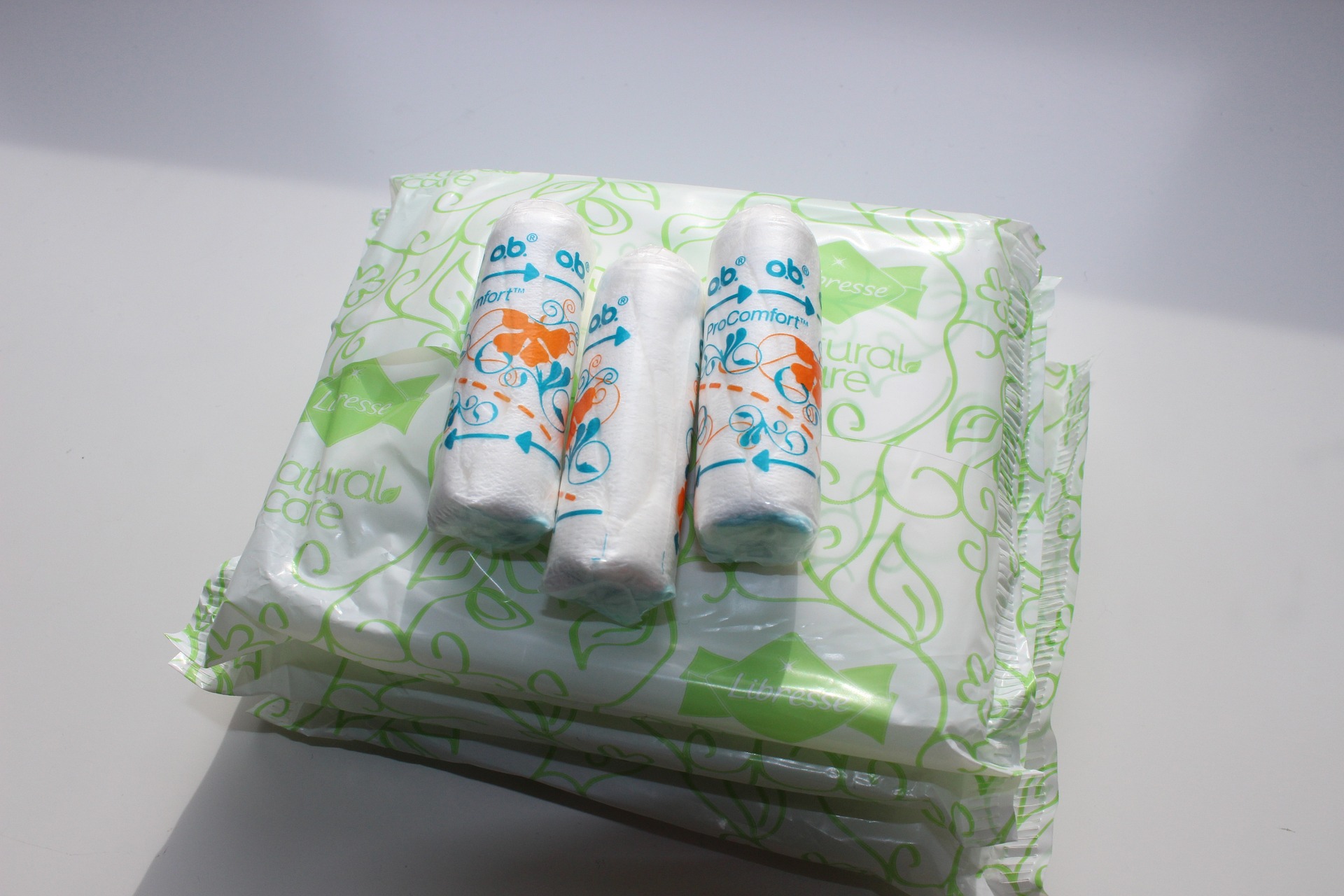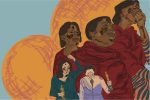Menstruation is a complicated topic that has been debated and denigrated for centuries. Individuals that menstruate have been subject to slander and misinformation as there are many complex pieces in understanding menstruation. Planned Parenthood defines menstruation as the time when uterine blood and tissue retires from the body through the vagina. This is also referred to as a period, and typically occurs each month.
Menstruation itself is just one part of the menstrual cycle, which is a 28-day cycle in which the body secretes certain timed hormones to prepare for pregnancy. The body releases estrogen and progesterone to mature the eggs that reside in the ovaries. These are grown throughout the follicular phase. In order to prepare for sperm and egg to meet in the uterus, these hormones cause the uterine wall to become thick, spongy and rich with nutrients in the event that the body will need to nurture a fetus. Following the follicular phase, ovulation occurs when an egg begins to make its way through the fallopian tube. The last phase before menstruation, known as the luteal phase, occurs when the egg is released into the uterus. Menstruation is merely the body’s reaction to not being pregnant.
This cycle begins in during puberty to prepare and mature the body for pregnancy. As the menstrual cycle begins, fertility grows over time. The body reaches peak fertility around 30 before it begins to decline. Typically, between the ages of 45 and 55, individuals that menstruate begin to experience menopause, which is when the menstrual cycle no longer occurs. This process happens over several years as reproductive hormone levels permanently decrease.
Menstruation can be affected by things like stress, exercise and diet. However, hormonal birth control may be a large factor for changes. Types of hormonal birth controls include the pill, a vaginal ring, a patch, an intrauterine device, the shot, an implant and the morning-after pill. Each of these works similarly in preventing pregnancy through suppressing the release of estrogen and progesterone to prevent the body from carrying out the various steps in the menstrual cycle. Because these interrupt the body’s natural release of hormones, they may stop menstruation entirely or have other effects on factors such as mood. Not all birth control is hormonal; some forms like the copper intrauterine device or condoms avoid affecting period or hormone cycles. Birth control is not always used as a contraceptive, since it may help regulate the menstrual cycle, reduce blood loss during periods for iron-deficient or anemic individuals, reduce the likelihood of cancer of the reproductive organs, prevent ovarian cysts, control acne or diminish pain levels from cramps.
Periods were thought of as magical and mystical in ancient Greek, Roman and Babylonian civilizations. During the Middle Ages, cramps were used as religious manipulation and seen as punishment from God. Menstruating individuals have been made to feel ashamed for having their periods throughout all of history, which has fostered the development of myths and superstitions. Even today, these wives’ tales are avoided around the world. Here are a few from each region of the world:
North America
In the United States, the scent of period blood is said to attract bears. Therefore, the conclusion is that it is best to avoid camping. In Mexico, exercising while menstruating is believed to damage the uterus. Menstruating individuals are also encouraged to avoid dancing to strong rhythms in Mexico.
South America
In Colombia, consuming cold drinks is understood to worsen period cramps. Cramps are the concern in Brazil as well, but they are associated with walking barefoot. Holding and hugging infants while menstruating in Bolivia is believed to cause illness in the babies.
Africa
Ugandan menstruators are forbidden from drinking their own cows’ milk out of fear of contaminating it. In Tanzania, menstrual clothing is unfavorable and is considered cursed if anyone other than oneself sees them. If period products are burned in Nigeria, they are believed to cause infertility or cancer.
Middle East
Superstitions in the Middle East revolve around cleanliness and bathing. For example, in Israel, showering with hot water is said to cause an extra heavy blood flow. Infertility in Afghanistan is said to come from taking a bath while menstruating.
Europe
In Poland, having sex while menstruating is rumored to kill the individual’s partner. Flowers are believed to die faster in Romania if an individual that is menstruating touches them. Menstruating Italians are discouraged from entering the kitchen as everything they attempt to cook will result in disaster. In the United Kingdom, using tampons as a virgin is thought to rupture the hymen, resulting in impurity.
Asia
Filipino menstruators are encouraged to wash their faces with their menstrual blood after starting their first period in order to have healthy skin for life. Contact is prohibited with individuals on their periods in Nepal. Warding off ghosts and evil spirits is executed in Malaysia by washing and disposing of menstrual products cleanly and in Bangladesh by burying old menstrual clothing.
Oceania
In Australia, swimming on your period is believed to result in a shark attack.
Menstruation is an uncertain topic around the world with each region housing age-old superstitions that are still believed and practiced today. Many menstruating individuals are shamed for having their periods, while others are considered fertile and pure. These myths and old wives’ tales provide insight into the cultural values of each country. Hopefully, with proper scientific education of menstruation, a balance can be struck between respecting existing cultural structures and encouraging strength and rights for all menstruating individuals.

















